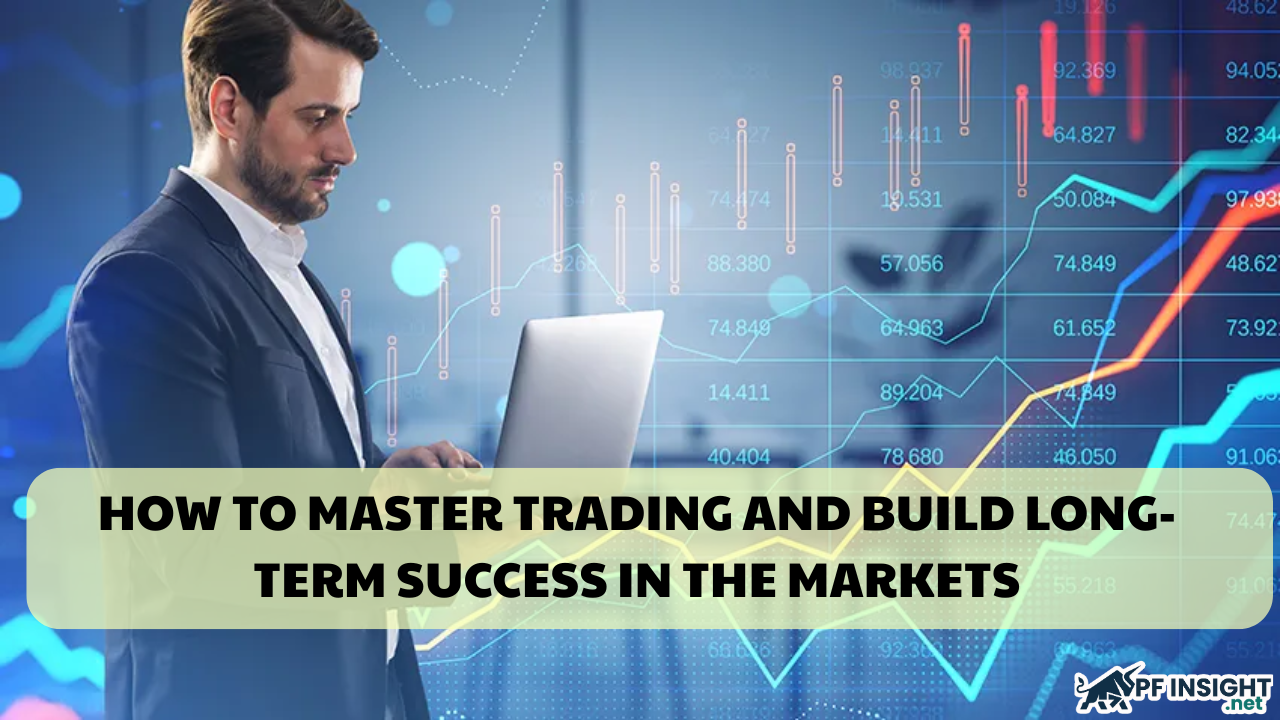What is master trading? In the ever-changing financial markets, millions of people around the world strive every day to discover effective trading methods and achieve financial freedom. However, most new traders fail because they focus only on “how to make quick money,” forgetting the most important factor – mastering themselves and the market.
In this article, Pfinsight.net will help you understand how to master trading and build long-term success in the markets through proven and time-tested principles.
- How to master fundamental analysis for traders and boost your profits?
- Prop trading basics: A beginner’s guide to proprietary trading
- The best traders in the world and what we can learn from them
What is master trading?

Mastery doesn’t mean winning every trade
Master traders don’t need to win every single trade. As you may know, trading is a game of probability and risk management, not luck or guessing. You can lose four trades but still make an overall profit if one winning trade has a strong risk-to-reward ratio.
What matters most is not whether you are “right or wrong,” but how much you lose when you’re wrong and how much you gain when you’re right.
Mastery begins with understanding yourself
There is no one-size-fits-all trading strategy. Successful traders understand their personalities, risk tolerance, and goals. If you prefer fast-paced action, you might choose scalping or day trading; if you are patient, swing or position trading could be a better fit.
Understanding yourself helps you avoid being influenced by others’ trading styles and maintain emotional stability.
Benefits of becoming a master trader
When you truly master trading, the rewards go far beyond profits – it’s about personal growth, discipline, and financial freedom.
- Consistent profits: Master traders understand probability and risk management. They don’t expect to win every trade but focus on long-term consistency to build sustainable income.
- Financial and time freedom: Mastering trading gives you the freedom to choose when and where to work. You’re no longer tied to a 9-to-5 job and can trade anywhere with an internet connection.
- Emotional control and discipline: Trading teaches you how to manage emotions – overcoming fear and greed, staying calm and patient, and maintaining discipline in both markets and life.
- Improved analytical and decision-making skills: Experienced traders analyze markets quickly, assess risk accurately, and make logical decisions – skills that are valuable in many areas of life and business.
- Long-term investment mindset: Master traders understand money flow and economic trends, helping them expand into investment, wealth management, and sustainable financial growth.
How to become a master trader in prop firm trading?

Build a strong foundation of knowledge and strategy
Learn and understand market fundamentals
One of the biggest mistakes new traders make is relying solely on indicators without understanding why price moves. To truly master the market, you must learn and combine three key areas:
- Technical analysis: Identify trends, price patterns, support and resistance zones.
- Fundamental analysis: Understand the impact of news, economic data, and monetary policy.
- Market sentiment analysis: Recognize crowd psychology, capital flow, and the behavior of institutional investors.
Professional traders don’t just look at charts. They stay informed about news, follow capital movements, and observe market reactions to make better decisions.
Develop your personal trading strategy
Once you have the knowledge, you need a consistent trading system. An effective strategy should include:
- Clear entry and exit rules.
- A minimum risk/reward ratio of 1:2.
- Strict money management – never risk more than 2% of your account per trade.
- Backtesting or demo testing before going live.
With a clear system, your decisions become more objective, emotions are reduced, and discipline is easier to maintain.
Adapt your analysis to changing market conditions
Markets never stay still. A professional trader continuously updates and adjusts their strategy to match market changes.
Each trader should develop a personalized trading system – a set of tools, indicators, and techniques that align with their trading style.
When you notice the market shifting, be ready to adapt. A skilled trader doesn’t cling to old methods – they evolve quickly to maintain their competitive edge.
Mindset and psychology: the 80% factor of success
Control your emotions
Emotions are the biggest enemy of traders. Many fail not because they lack knowledge, but because they let fear, greed, or hope dominate their decisions.
- Fear makes you miss opportunities.
- Greed makes you hold positions too long.
- Hope prevents you from cutting losses.
To overcome this, plan your trades in advance, keep a trading journal to analyze your behavior, and step away when your emotions are unstable. A great trader isn’t emotionless – they know how to act correctly despite emotions
Stay disciplined in all situations
Discipline is the foundation of long-term success. No matter how good your strategy is, breaking your own rules will lead to failure.
Successful traders stick to their trading plan, accept small losses, and patiently wait for high-quality opportunities.
As Warren Buffett famously said: “The stock market is a device for transferring money from the impatient to the patient.”
Building long-term success in the markets

Risk management first
- No one can predict the market with 100% accuracy, so capital preservation is the top priority.
- A golden rule is to risk only 1–2% of your account per trade and always use a stop-loss.
- As long as you protect your capital, you’ll always have another chance to win.
Keep learning continuously
Markets evolve constantly – what works today might fail tomorrow. Successful traders are lifelong learners who test, adapt, and upgrade their knowledge.
Follow financial reports, macroeconomic data, and – most importantly – learn from your mistakes to grow each day.
Think long-term instead of chasing short-term profits
Don’t aim to get rich quickly. Sustainable success comes from developing skills, patience, and the right mindset. When you focus on learning and mastering the process, profits naturally follow.
Conclusion
Master trading is neither a short nor an easy journey. It requires mindset training, emotional control, strategy development, and adaptability to changing market conditions. A successful trader isn’t the one who always wins, but the one who survives, learns, and thrives through every phase of the market.
If you’re serious about this path, start with the fundamentals, build strong discipline, and stay consistent. Long-term success will come when you manage risk wisely, keep learning, and remain committed to your goals.







